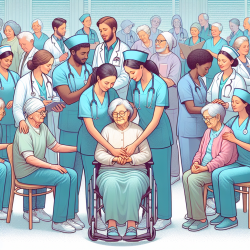The journey of a medical practitioner is one of continuous learning and adaptation. As healthcare professionals, we strive to provide the best care possible, but this requires ongoing skill development and understanding of current medical practices. A recent study on junior doctors in Ethiopia offers valuable insights into how we can enhance our skills and improve patient outcomes.
Understanding the Study
The research titled "Practice analysis of junior doctors in Ethiopia: implications for strengthening medical education, practice and regulation" sheds light on the performance of junior doctors and highlights areas for improvement in medical education and practice. Conducted with 191 junior doctors across various public hospitals in Ethiopia, the study aimed to identify competency gaps and inform the composition of subjects in national licensing examinations.
Key Findings
The study revealed several important findings:
- Junior doctors frequently performed tasks related to internal medicine and pediatrics but were less involved in obstetrics, gynecology, ophthalmology, psychiatry, and dentistry.
- There were significant competency gaps in conducting clinical procedures, research, and health programming tasks.
- The study recommended that over three-quarters of the national licensing examination focus on internal medicine, pediatrics, surgery, obstetrics and gynecology, and public health.
Implications for Medical Practitioners
These findings have several implications for medical practitioners looking to improve their skills:
1. Focus on Comprehensive Skill Development
The study highlights the importance of developing a broad range of skills beyond core areas like internal medicine and pediatrics. Practitioners should seek opportunities to gain experience in less frequently practiced areas such as psychiatry and ophthalmology to ensure well-rounded competence.
2. Embrace Continuous Learning
The identified competency gaps suggest a need for ongoing professional development. Engaging in continuous education through workshops, seminars, or online courses can help bridge these gaps. Consider exploring resources that focus on clinical procedures and research methodologies.
3. Advocate for Curriculum Review
The findings underscore the need for curriculum updates to better prepare medical students for real-world challenges. Practitioners can play a role by providing feedback to educational institutions about current training limitations and advocating for curriculum enhancements that address identified gaps.
4. Participate in Licensing Examination Discussions
The study's recommendations regarding licensing examinations highlight the importance of aligning these assessments with real-world practice needs. Practitioners should engage with regulatory bodies to ensure that examinations reflect current healthcare demands and adequately assess necessary competencies.
Encouraging Further Research
This study serves as a call to action for further research into medical education and practice. By understanding the evolving needs of healthcare systems globally, practitioners can contribute to shaping more effective training programs that produce competent healthcare providers.
If you're interested in exploring this topic further, consider conducting your own research or collaborating with academic institutions to investigate specific areas of interest within medical practice.
To read the original research paper, please follow this link: Practice analysis of junior doctors in Ethiopia: implications for strengthening medical education, practice and regulation.










